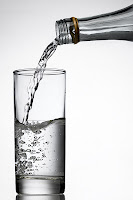 |
| Rikki Schwartz |
With her upcoming 46th birthday, Rikki knew that she had to make lifestyle changes. “I realized that the distance to 50 was shorter than the distance from 40,” she says. “I concurrently realized that I likely would not make it past 60 if I didn’t do something as soon as possible, or if I did make it past 60, my quality of life would be dismal.” Admitting her diminished well-being was just the first step. The exercise component, which she knew had to be a part of her journey to better health, was a different obstacle entirely. Rikki not only associated exercise with discontentment, but also with fear. The thought of working out was daunting. As Rikki explains: “Exercise had always meant two things to me: pain and humiliation.”
Although she knew that she had to overcome her trepidation, the thought of joining a health club wasn’t even remotely appealing. Beyond the challenge of finding motivation to leave her home to exercise, Rikki just couldn’t face the deep-rooted public humiliation that she associated with gyms. Contacting Perfect Personal Training, whose wellness professionals would come right to her home for each session, seemed like a much better fit, especially with her busy career. She loved the thought of a “gym” knocking on her door and asking her for less than an hour of her time, which for Rikki was far more motivating than packing a duffle bag full of spandex and leaving her house.
Working with Perfect Personal Trainers Val Fiott and Jordan Gruppen in the comfort of her own home, Rikki never imagined that she would trade shame for a decreased body fat percentage and new-found confidence. But, that wasn’t before Val helped Rikki to realize something even more important: she was asthmatic. “I did not even suspect the condition until Val Fiott encouraged me to seek medical attention about three months after I began working out with him, once he believed that I was experiencing what he believed to be asthmatic symptoms during my workouts,” Rikki says. The discovery explained some unanswered questions for her, including why she had avoided most physical activities for much of her life. “That may have been addressed medically when I was younger, had I known that asthma was, in fact, largely responsible for my lack of aerobic capacity,” she says.
Asthmatic or not, Rikki wasn’t about to let anything inhibit her at this point in her life. Her continued work with Perfect Personal Training produced incredible results. Rikki hadn't realized, until her initial work with Val Fiott, how truly at risk her health was. Although she had always considered herself to be of “average” weight, she learned, through Perfect Personal Training’s in-home consultation and fitness assessment, that her body fat percentage was nearly 45 percent. “I was thereby morbidly obese,” she explains. “That was obviously disturbing.”
Since beginning with Perfect Personal Training, the now 50-year-old Rikki Schwartz has decreased her body fat percentage by nearly 10 percent, has tremendously improved daily nutrition habits, and feels much more energetic and confident. “Considering I was, prior to PPT, a dyed-in-the-
Aside from her dramatically-
Perfect Personal Training, LLC
(877)698-3648
http://perfectpersonaltraining.com







